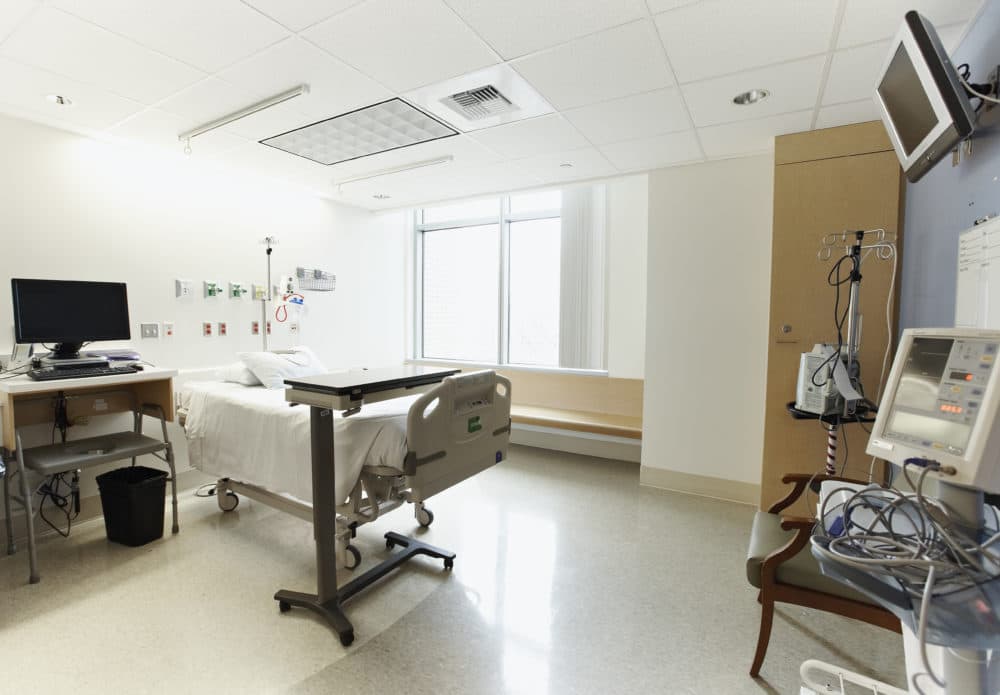Advertisement
10 years after a landmark health care law, the push to contain costs may be stalling

Ten years ago, as medical costs soared, Massachusetts passed landmark legislation to tackle the problem.
The law created the Health Policy Commission, a first-of-its-kind watchdog agency to monitor rising costs. And it set a target to limit spending growth.
A decade later, that experiment in cost control has had mixed success. Health care spending has grown less rapidly — yet consumers and businesses are still grappling with higher costs each year.
Now, many health industry insiders and observers say, progress is stalling. They say the Health Policy Commission needs more power to hold the industry accountable for high spending and make care more affordable for all.
Leaders of the commission, too, argue they need more authority, such as the ability to impose bigger fines on providers and insurers that exceed spending targets.
“We have absolutely made significant progress in slowing the growth of health care costs. But there is a lot of work left to do,” said David Seltz, executive director of the Health Policy Commission since it was established in 2012.
“We need to continue to put the pressure on bringing spending growth down," he said, "but also ensuring that health insurance companies are passing those savings along to consumers in the form that people feel: premiums, co-pays, deductibles.”

Since its early days, the Health Policy Commission has used the bully pulpit to raise the alarm about hospital mergers and other trends that threaten to raise costs. After it warned that Mass General Brigham's plan to acquire South Shore Hospital would be expensive for consumers, Attorney General Maura Healey threatened to sue, and Mass General Brigham (then known as Partners HealthCare) eventually called off the deal.
Earlier this year, the commission raised concerns about a plan by Mass General Brigham to build three new outpatient surgery centers. Mass General Brigham eventually scrapped that plan, too, but moved forward with other plans to construct new inpatient buildings at Massachusetts General Hospital.
In other instances, based on the Health Policy Commission’s comments, regulators at the Department of Public Health have forced hospitals to meet certain cost-control conditions in order to merge or expand.
“Massachusetts is in a much better place because of the Health Policy Commission,” said Lora Pellegrini, president of the Massachusetts Association of Health Plans, which represents insurers.
Advertisement
Pellegrini said the commission needs more power to tackle high hospital prices and prescription drug prices.
“As time has gone on, some have recognized the HPC doesn’t have a whole lot of authority,” she said.
“Hospitals and physicians are asking health plans like Blue Cross for really substantial increases in the prices that we pay for their services. And that has me very worried."
Andrew Dreyfus, Blue Cross Blue Shield of Massachusetts
Andrew Dreyfus, chief executive of the state’s largest health insurer, Blue Cross Blue Shield of Massachusetts, also said the commission's impact seems to be waning and called for the state government to do more.
“Hospitals and physicians are asking health plans like Blue Cross for really substantial increases in the prices that we pay for their services. And that has me very worried," he said, "because that's what put us in this position in the first place."
“There's a risk we could fall back to where we were,” he said.
Some hospital leaders, however, feel unfairly targeted by the commission, and worry it already goes too far in shaping the industry.
The COVID pandemic has pummeled hospital finances, and they’re now facing higher costs because of inflation and continuing workforce shortages.
Hospitals are trying to balance these rising costs with the need to keep care affordable, said Steve Walsh, president of the Massachusetts Health & Hospital Association.
Walsh — a former lawmaker who worked on the 2012 legislation — said hospitals take the law "incredibly seriously." But he said the state needs to set more flexible spending targets that account for historic levels of inflation.
“If the cost of every good and service that is provided to you goes up 10%, and you're held to a benchmark of 3.6% [cost increases], it's just a setup for failure,” he said.

The state law set a target of keeping statewide health care spending growth under 3.6 percent a year. The Health Policy Commission can require any health care organization that exceeds that target to submit a plan to cut costs.
The commission has done this only once, with Mass General Brigham this year.
But the penalty for failing to comply is $500,000 — a paltry sum for a hospital system that measures revenue in billions.
“I think we're seeing the limits of what power the HPC has,” said Paul Hattis, a senior fellow at the Lown Institute and former commission board member.
Even the commission’s supporters agree that it hasn’t been able to shift some fundamental dynamics of the health care market. Big hospitals and insurers continue to expand and consolidate. The price variation between big teaching hospitals and small community hospitals remains stark. And patients are still paying more for health care each year.
Amy Rosenthal, executive director of Health Care for All, said her consumer advocacy group constantly hears from people who can’t afford their medications or doctors' appointments.
“Health care affordability is one of the things we hear about every single day in every single language in which we serve,” she said.
Forty-one percent of Massachusetts residents said they or their families had trouble paying for health care last year. And many of them are forgoing care that they need because it’s too expensive, according to a survey from the Center for Health Insurance and Analysis, or CHIA, a state agency that analyzes health care data and also was established through the 2012 law.
Massachusetts spent $62.6 billion on health care in 2020, or about $9,000 per person, according to the most recent figures from CHIA. Spending dipped in 2020 because of health care shutdowns during the early part of the COVID pandemic — but it is expected to rise again, more rapidly than in previous years.
Massachusetts has long been a national model for health policy. In a 2006 law signed by then Gov. Mitt Romney, the state expanded health insurance coverage to nearly all residents. A second — and more complicated — phase of reform came six years later, when former Gov. Deval Patrick signed the cost control legislation.
Several states have watched Massachusetts's experience and enacted similar cost-control measures, sometimes with stronger penalties.
Katherine Baicker, dean of the University of Chicago's Harris School of Public Policy, said states should consider not just how much they spend on health care — but whether the money is going to valuable services that help people get healthier.
“You want to make sure you’re spending your resources where you’re getting bang for the buck,” she said.
Ultimately, it will be up to lawmakers and next governor in Massachusetts to decide whether to give the Health Policy Commission more authority, or try other strategies to make health care more affordable.
House and Senate leaders told WBUR they're planning to revisit health care costs in the next legislative session — including reviewing the role of the Health Policy Commission and how to expand it.
“One of the hallmarks of health care reform efforts in Massachusetts is our willingness to evolve based on lessons learned,” said Seltz, the commission director. “Now is a time to rethink and retool our approach to health care cost containment after these 10 years.”
This segment aired on September 6, 2022.
